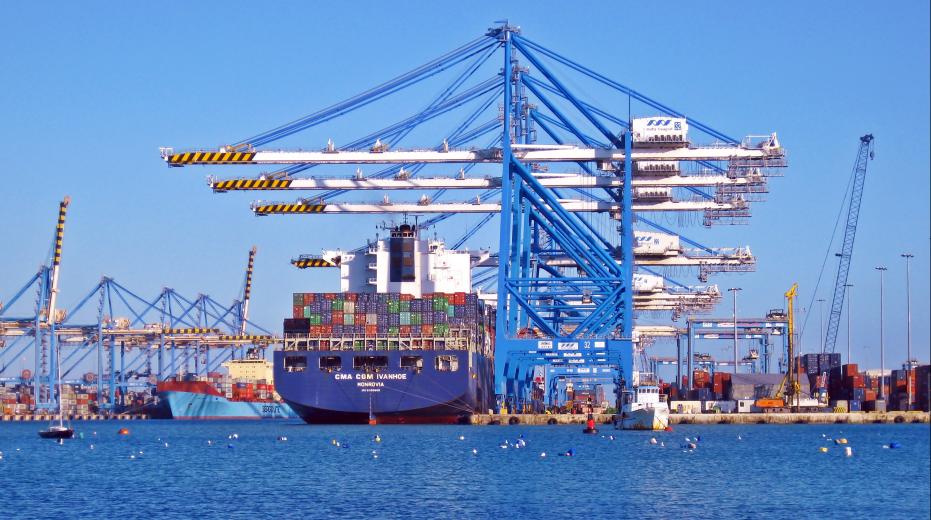
Research and analysis
Our experienced team work on a wide range of topics related to the reduction of greenhouse gas emissions from the shipping sector. The main areas of focus are, among others, policy and legal analysis, decarbonisation mechanisms and measures, alternative fuels, and market based measures. We analyse these issues at international, national as well as local level.
Our latest research outcomes:
Act Now or Pay Later: The Costs of Climate Inaction for Ports and Shipping: A study by authored by RTI International, a nonprofit research institute, on behalf of EDF reveals that the global shipping and port industry is susceptible to billions of dollars in infrastructure damage and trade disruption from climate change impacts.
Harnessing the EU ETS to reduce international shipping emissions: A new report by UMAS for Environment Defense Fund Europe (EDF Europe) stresses the need to refine the design of the EU Emission Trading System’s (ETS) inclusion of shipping to effectively reduce greenhouse gas emissions from maritime shipping and advance zero-carbon alternative fuels.
Indonesia: fuelling the future of shipping: A P4G Getting to Zero Coalition Partnership study by Ricardo investigates Indonesia’s potential to be a source of green fuels for global shipping.
Study on the Green Development of BRI Maritime Connectivity: Environmental Defense Fund contributed to a new BRI report, which highlights innovative ideas and low-carbon technologies that can cut shipping pollution and help China and other BRI countries meet their climate goals.
Mexico: fueling the future of shipping: A study by Ricardo and Environmental Defense Fund for the P4G Getting to Zero Coalition Partnership finds that Mexico's potential for renewable energy generation, the location of its ports on busy shipping routes, and strong trading relations make the country well suited as a zero-carbon shipping fuel hub.
South Africa: fueling the future of shipping. A study by Ricardo and Environmental Defense Fund for the P4G Getting to Zero Coalition Partnership finds that South Africa holds an untapped opportunity to supply the global shipping industry with zero carbon fuels.
Principles of International Law and the Adoption of Market-Based Mechanism for Greenhouse Gas Emission From Shipping. A white paper from the Environmental Defense Fund Europe and Columbia University’s Sabin Center for Climate Change Law looks into key principles relevant to the International Maritime Organization (IMO) and analyses their potential role in implementing market-based measures to tackle the shipping industry’s greenhouse gas emissions.
Exploring the relevance of ICAO’s Sustainable Aviation Fuels framework for the IMO. Our report examines the ICAO's Sustainable Aviation Fuels frameworks and its applicability for the shipping sector. It draws lessons learnt from the framework adopted by ICAO, CORSIA, and makes a set of key recommendations for the IMO to take into account.
Electrofuels for Shipping - How synthetic fuels from renewable electricity could unlock sustainable investment in countries like Chile. The paper analyses electrofuels, namely green ammonia, hydrogen and methanol made with untapped renewable energy, as a tool to decarbonise international shipping. The report, focused specifically on potential implementation of these fuels in Chile, which has one of the world's largest renewable energy capacity that currently remains mostly unused.
Sailing on Solar - Could green ammonia decarbonise international shipping. This paper finds sustainable shipping fuels can help developing countries benefit from the clean energy economy.
The Norwegian NOx Fund. The paper analyses the mechanism behind the Norwegian NOx fund and describes the lessons learnt which could be applied especially for greenhouse gas emission reduction in the shipping sector.
Lessons from other sectors for enabling the deployment of new low carbon technologies in shipping. The report draws out lessons learnt from various countries and sectors already reducing emissions. It highlights policies that can increase in-sector technology innovation, investment and commercialisation of technologies, and that can be adapted to the maritime sector.
The legal bases for IMO climate measures. The paper investigates the potential legal bases for the IMO to enact climate measures. It finds that the IMO has broad powers to enact almost any required measure, and quickly via a tacit amendment to the International Convention for the Prevention of Pollution from Ships (MARPOL).